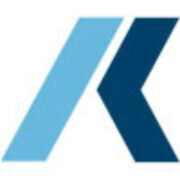Best Antitrust Lawyers in Switzerland
Share your needs with us, get contacted by law firms.
Free. Takes 2 min.
Or refine your search by selecting a city:
List of the best lawyers in Switzerland
About Antitrust Law in Switzerland
Antitrust law in Switzerland is designed to promote fair competition and prevent monopolistic practices. The primary legislation governing competition is the Federal Act on Cartels and Other Restraints of Competition (Cartel Act). The enforcement is primarily carried out by the Swiss Competition Commission (COMCO), which regulates issues such as price fixing, market dominance abuse, and merger control. Antitrust law is critical in ensuring that markets operate efficiently, consumer interests are protected, and innovation is encouraged.
Why You May Need a Lawyer
Engaging a lawyer who specializes in antitrust law can be crucial in various situations. Whether you are a business navigating complex joint ventures and alliances, responding to a market investigation, or facing an antitrust allegation, legal expertise is essential. Additionally, if you are pursuing litigation or seeking compliance advice, an experienced lawyer in Swiss antitrust law can provide guidance to protect your interests.
Local Laws Overview
Swiss antitrust laws revolve around preventing anti-competitive agreements, abuse of dominant market positions, and overseeing mergers that could significantly reduce competition. Key aspects include:
- Prohibition of Cartels: The Cartel Act outlaws agreements that significantly restrict competition, such as price-fixing and bid-rigging.
- Abuse of Dominance: Companies holding a dominant position must not abuse their power to eliminate competitors or exploit their customers.
- Merger Control: COMCO oversees mergers and acquisitions to prevent the creation or strengthening of dominant positions.
- Investigation Powers: COMCO has wide investigative powers, including dawn raids and requests for information, to enforce compliance.
Frequently Asked Questions
What constitutes an anti-competitive agreement under Swiss law?
Anti-competitive agreements include those that fix prices, limit production or supply, and allocate markets or customers among competitors.
What actions are considered as abusive by dominant companies?
Actions such as predatory pricing, refusal to supply, and imposing unfair trading conditions could be deemed abusive for dominant companies.
When is a merger subject to regulatory approval in Switzerland?
Mergers are subject to approval if the companies involved meet certain turnover thresholds, which indicates significant potential market impact.
How does COMCO enforce antitrust laws?
COMCO enforces these laws through investigations, sanctions, and ensuring that companies comply with legal obligations and commitments.
Are there any exemptions from the Swiss Cartel Act?
Certain agreements may be exempt if they provide efficiency gains that outweigh anti-competitive effects, among other reasons.
Can Swiss antitrust decisions be appealed?
Yes, decisions by COMCO can be appealed to the Federal Administrative Court and, ultimately, to the Swiss Federal Supreme Court.
What are the penalties for violating Swiss antitrust laws?
Penalties can range from fines based on turnover to injunctions, invalidating agreements, and imposing additional obligations on the involved parties.
What is the role of leniency programs in Swiss competition law?
Leniency programs incentivize companies to come forward with information on cartels in exchange for reduced fines, promoting self-reporting.
How is market dominance determined in Switzerland?
Market dominance is typically assessed based on market share, financial resources, access to markets, and absence of strong competition.
What is the impact of EU competition law on Swiss antitrust practices?
While Switzerland is not part of the EU, its antitrust laws are influenced by EU policies, especially given the close economic ties and mutual cooperation agreements.
Additional Resources
For further information on antitrust issues in Switzerland, consider reaching out to the following resources:
- Swiss Competition Commission (COMCO): The body responsible for enforcing the Cartel Act.
- Competition and Antitrust Law Practitioners: Legal professionals specializing in competition law matters.
- Academic Institutions and Research Centers: Offer studies and insights into the evolving field of antitrust law.
Next Steps
If you need legal assistance with antitrust issues, start by consulting a lawyer with specific expertise in antitrust law. Prepare a list of questions or issues you face to ensure you obtain relevant advice. Consider initial consultations with multiple firms to determine the best fit for your needs. It's also helpful to stay informed on current practices and legislations by following updates from COMCO and other relevant authorities.
Lawzana helps you find the best lawyers and law firms in Switzerland through a curated and pre-screened list of qualified legal professionals. Our platform offers rankings and detailed profiles of attorneys and law firms, allowing you to compare based on practice areas, including Antitrust, experience, and client feedback.
Each profile includes a description of the firm's areas of practice, client reviews, team members and partners, year of establishment, spoken languages, office locations, contact information, social media presence, and any published articles or resources. Most firms on our platform speak English and are experienced in both local and international legal matters.
Get a quote from top-rated law firms in Switzerland — quickly, securely, and without unnecessary hassle.
Disclaimer:
The information provided on this page is for general informational purposes only and does not constitute legal advice. While we strive to ensure the accuracy and relevance of the content, legal information may change over time, and interpretations of the law can vary. You should always consult with a qualified legal professional for advice specific to your situation.
We disclaim all liability for actions taken or not taken based on the content of this page. If you believe any information is incorrect or outdated, please contact us, and we will review and update it where appropriate.
Browse antitrust law firms by city in Switzerland
Refine your search by selecting a city.














